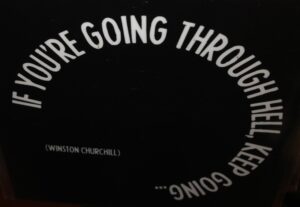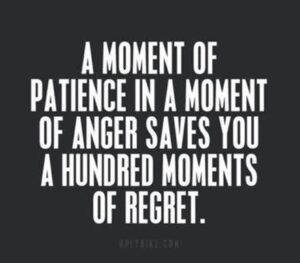 This week I was inspired by an article in the Fence Post: Your Trusted Source for Ag News & Information. “As iron sharpens iron: Stories of mental health from rural Colorado” was written by Rachel Gabel and published on October 29, 2021. Gabel is an agriculture journalist, author, and member of one of Colorado’s beef-producing families. The complicated subject is rural mental health, and suicide. It is so worth the read.
This week I was inspired by an article in the Fence Post: Your Trusted Source for Ag News & Information. “As iron sharpens iron: Stories of mental health from rural Colorado” was written by Rachel Gabel and published on October 29, 2021. Gabel is an agriculture journalist, author, and member of one of Colorado’s beef-producing families. The complicated subject is rural mental health, and suicide. It is so worth the read.
As you know, suicide is incredibly tragic and painful. Grieving the loss of someone who chooses to end life is often quite different from grieving other deaths. In my experience, the primary difference is the depth of and residual guilt.
 I don’t have any magic wisdom or concrete solutions, but I have ideas on how to help a person living in hopeless despair. Ending life does not usually happen spontaneously without abuse of drugs or alcohol. We typically have time to notice and act.
I don’t have any magic wisdom or concrete solutions, but I have ideas on how to help a person living in hopeless despair. Ending life does not usually happen spontaneously without abuse of drugs or alcohol. We typically have time to notice and act.
Suicide has no prejudice, and no social group or race is exempt. It is also an awkward subject and often skirted around, even by professionals. It is hard to ask, “Are you considering killing yourself?” It is also hard to answer, “Yes.”
Two of the top problems with suicide prevention are people—the suicidal person and the people around them. Both might sense something wrong, but they either minimize the signs or don’t communicate their concerns. Maybe they are in denial or fear asking could make it worse.
My message to everyone is, sharing concerns is better than nothing. It is not easy to look someone in the eyes and say, “I’m worried about you. Talk to me.” It is less intimidating to put on blinders and pretend you don’t notice someone’s isolation, down mood, or differences in behavior. It takes courage, and we all have courage.
Remember, any words of kindness, time to listen, or something as simple as inviting them to take a walk can make a huge difference. Never underestimate your ability to help another human restore hope.
That said, remember you could do everything in your power, and they might still choose to take their lives. That is because their choices are not within your control. But doing anything has higher odds of making a difference than doing nothing. We are not magicians, nor are we mind-readers. We are, however, able to observe, notice, pay attention, and say or do something. We might not want to get involved, but we need to shift our thoughts and think, “I might be wrong, but I think they are in trouble. I’m going to ask.”
 They could say, “No, I’m fine,” and still pick up the gun, take the pills, or drive into a tree, but at least you did something. You can’t do everything, and with hindsight, you might have done more, but you are never responsible for someone else’s behavior.
They could say, “No, I’m fine,” and still pick up the gun, take the pills, or drive into a tree, but at least you did something. You can’t do everything, and with hindsight, you might have done more, but you are never responsible for someone else’s behavior.
Don’t make the tragedy of suicide unspeakable. With the state of our world, suicide rates are increasing, so let’s join forces and stay more connected with people we care about and voice our concerns with full attention and compassion. It will help you both, no matter the outcome.
Until the next time: Live while you live.
Powered by WPeMatico